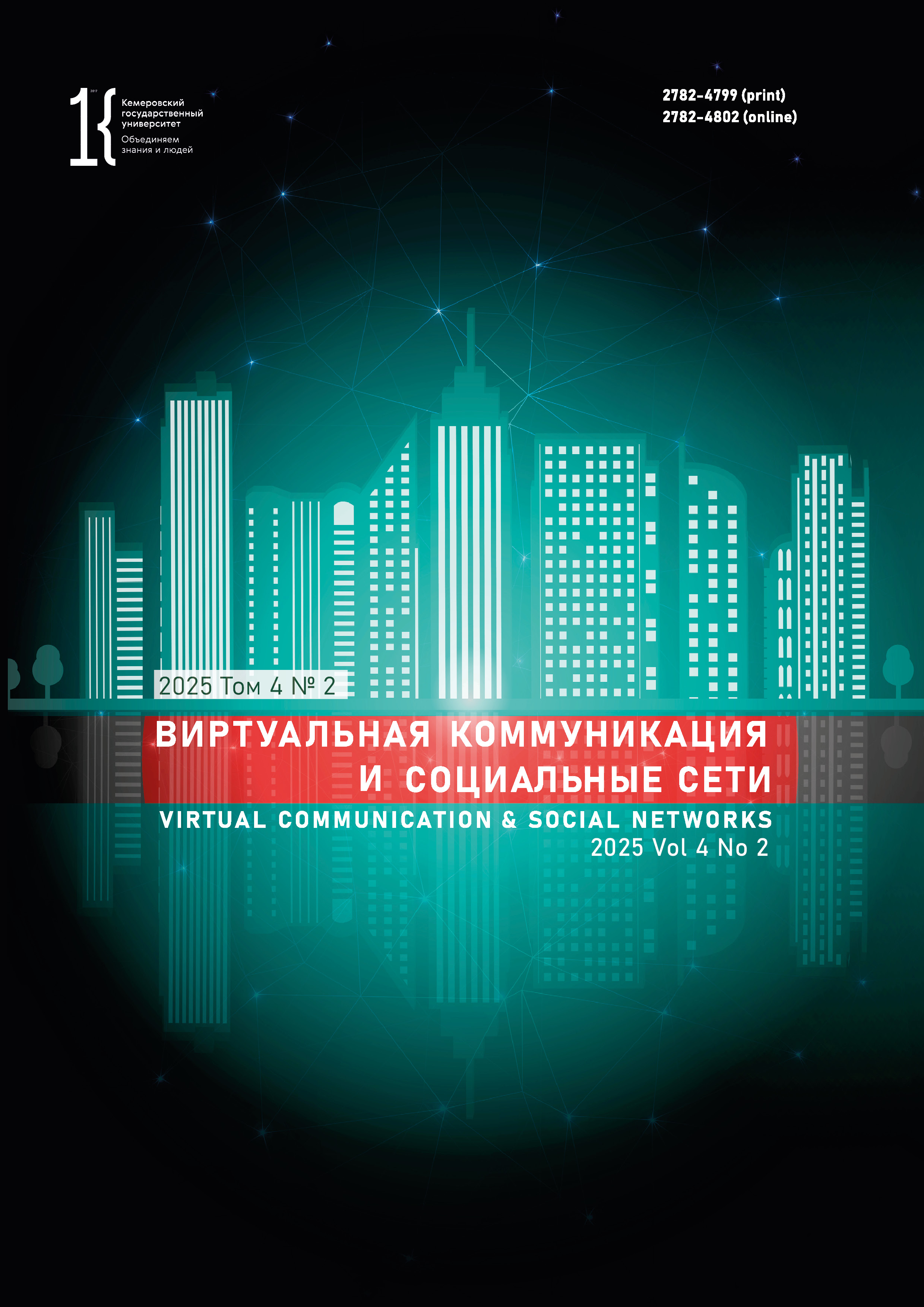Moscow, Russian Federation
The paper deals with the media image of senior age citizens as a demographic stratum in linguistic, social, cultural, and axiological aspects. The material involved online Greek media texts on the topic of digitalization with clusters of linguistic tools that explicate the image of sixty-plusers. The research methods consisted of content analysis, description, structural and semantic analysis, and comparison, categorization, and classification. They made it possible to reveal the way elderly people behave in digital environment and the linguistic means that describe these behavior patterns. The cluster of Greek lexical units attributing this age group highlighted the current axiological profile of senior citizens in the Greek linguistic worldview, as well as some verbal markers that reflect the attitude of younger content makers and users. The modern media texts actualizing the concept of sixty-somethings demonstrated non-stereotypical perceptions and a broader semantic volume, which indicates the ongoing reformatting of social values. As a global social trend, the digital transformation of society is changing the public attitude to senior citizens: in just a decade, the new senior generation will be digitally literate. The media coverage of the way today’s senior citizens adapt to the digital environment, with all its stages and linguistic means, allows for a temporal juncture of the contemporary Greek social values.
senior age, internet media, digital technology, digital skills, sixty-year-olds, elderly people, pensioner
1. Antipov M. A. Sociality and socialization in the context of digitalization of society. Philosophical Thought, 2022, (11): 61–72. (In Russ.) https://doi.org/10.25136/2409-8728.2022.11.38963
2. Vartanova E. L. Developing media understanding: From technology to social space. Medi@Almanah, 2020, (5): 12–24. (In Russ.) https://doi.org/10.30547/mediaalmanah.5.2020.1224
3. Golyanova A. S., Davydova Yu. A. Formation of digital literacy in the older generation. CITISE, 2023, (3): 127–138. (In Russ.) http://doi.org/10.15350/2409-7616.2023.3.11
4. Gureeva A. N. Theoretical understanding of mediatization in the digital environment. Vestnik Moskovskogo universiteta. Seriya 10. Zhurnalistika, 2016, (6): 191–208. (In Russ.) https://elibrary.ru/xhrbzl
5. Guts E. N., Khudyakova N. O. Social stereotypes of old age in the linguistic consciousness of the young (based on psycholinguistic experiments). Ethnopsycholinguistics, 2020, (3): 157–165. (In Russ.) https://doi.org/10.31249/epl/2020.03.11
6. Zakharov M. Yu, Starovoytova I. E., Shishkova A. V. Digital culture – a historical stage in the development of the information culture of society. Vestnik universiteta, 2020, (5): 200–205. (In Russ.) https://doi.org/10.26425/1816-4277-2020-5-200-205
7. Zborovsky G. E. Social community of the "third age" people: Concept, structure, and functions. Surgut State Pedagogical University Bulletin, 2019, (2): 9–20. (In Russ.) https://doi.org/10.26105/SSPU.2019.59.2.001
8. Karasik V. I. The language of social status. Moscow: Gnosis, 2002, 333. (In Russ.) https://elibrary.ru/ugrirl
9. Kargapolov S. V. Electronic culture: A sociological analysis. Surgut State Pedagogical University Bulletin, 2017, (5): 231–236. (In Russ.) https://elibrary.ru/ysqwhb
10. Kasavina N. A. Digitalization as a subject of interdisciplinary studies. Epistemology & Philosophy of Science, 2019, 56(4): 251–259. (In Russ.) https://doi.org/10.5840/eps201956480
11. Kranzeeva E. A. "Grandmothers-online": The socio-political activity of the elderly. Logos et Praxis, 2019, 18(1): 66–74. (In Russ.) https://doi.org/10.15688/lp.jvolsu.2019.1.7
12. Krasnykh V. V. Virtual reality or real virtuality. Moscow: Dialog-MSU, 1998, 352. (In Russ.)
13. Krasnykh V. V. Ethnopsycholinguistics and linguacultural science: A course of lectures. Moscow: Gnosis, 2002, 284. (In Russ.)
14. Kuzevanova A. L., Zorkova V. A., Nadezhkina E. Yu. Social well-being of the elderly in terms of digitalization. Sociology, 2022, (3): 189–199. (In Russ.) https://elibrary.ru/bikoow
15. Kuznetsova E. I., Polozhenskaya N. O. Digital reality as a medium of personal socialization. Society: Philosophy, History, Culture, 2023, (10): 38–43. (In Russ.) https://doi.org/10.24158/fik.2023.10.4
16. Mytil A. V., Doudchenko O. N. Older adults and the digital world (by results of empirical research). Rossija reformirujushhajasja, 2020, (18): 333–356. (In Russ.) https://doi.org/10.19181/ezheg.2020.14
17. Sargaeva L. A., Bakhurnova V. S., Kopalkina E. G. Digital technologies and the quality of life of the elderly in modern conditions. Social Competence, 2023, 8(1): 119–128. (In Russ.) https://elibrary.ru/mxsxqc
18. Hermans A. The digital age? Also MY ERA! Media and information literacy: A key to ensuring the rights of older people to participate in the digital age. Council of Europe. 2022, 48. (In Greek.) URL: https://rm.coe.int/digital-literacy-for-seniors-gr-final/1680a976e5 (accessed 10 Jan 2025).
19. Ronchi A. M. e-Culture. Cultural content in the digital age. Springer, 2009, 456. https://doi.org/10.1007/978-3-540-75276-9
20. Tsoli E. Master's Thesis "The use of the internet in old age". University of West Attica, Athens, 2023, 69. (In Greek.)















